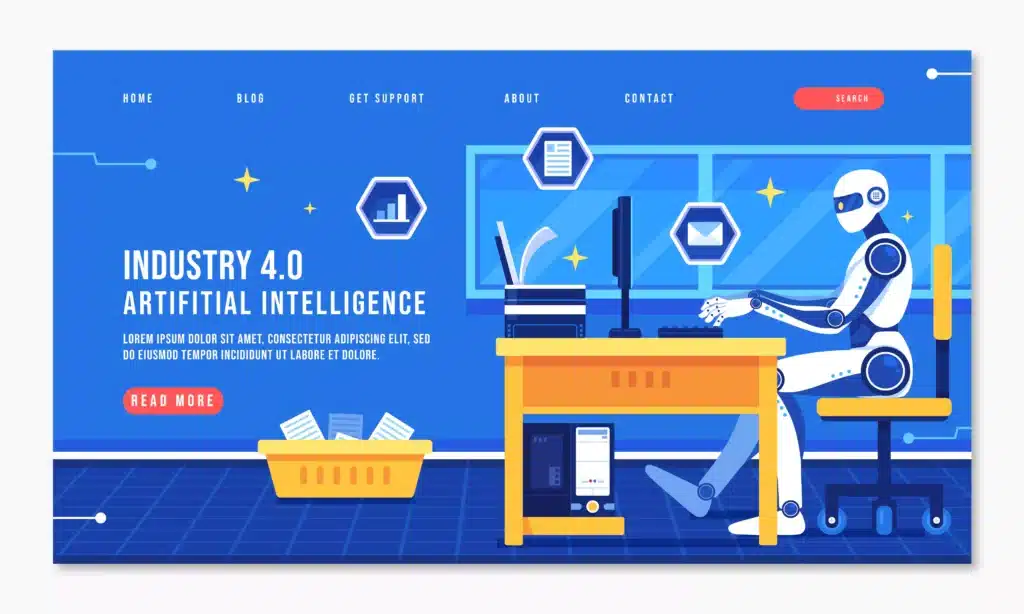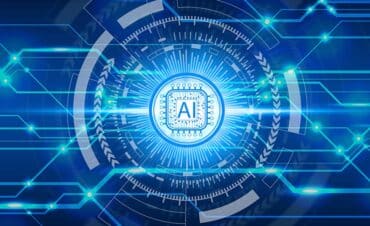By Ubaid Syed
The Role of Artificial Intelligence in Software Development
Artificial Intelligence (AI) is transforming industries across the globe, and software development is no exception. Artificial Intelligence in software development profoundly reshapes how applications are designed, developed, and maintained. From automating mundane coding tasks to predicting failures before they happen, AI enhances every stage of the software development lifecycle. This article explores the role of AI in software development, focusing on its impact on web portal development, custom solutions, B2B applications, and the integration of methodologies like Kaizen in the development process.
AI in Web Portal Development
Web portal development is a complex process that involves integrating various services and functionalities into a cohesive user experience. AI is critical in streamlining this process, enabling developers to create more intelligent and responsive web portals. By leveraging AI algorithms, a web portal development company can automate routine tasks such as coding, testing, and debugging, significantly reducing development time and costs.
AI enhances the user experience by enabling more personalized and dynamic content delivery. For instance, AI-powered recommendation engines can analyze user behavior and preferences to suggest relevant content, products, or services on a web portal. This level of personalization is crucial in B2B web portal development, where user engagement and satisfaction directly impact business success.
Enhancing Custom Web Portal Development with AI
In custom web portal development, AI provides the tools to create highly tailored solutions that meet specific business needs. Custom portals often require unique features and functionalities that are unavailable in off-the-shelf solutions. AI enables developers to design and implement these features more precisely and efficiently.
For example, AI can analyze large datasets to identify patterns and trends that inform the development of predictive analytics tools within the portal. Businesses can then use these tools to make data-driven decisions, enhancing their competitiveness in the market. Furthermore, AI-driven automation tools can optimize workflows within the portal, improving operational efficiency and reducing the likelihood of human error.

AI and B2B Web Portal Development
B2B web portal development presents unique challenges, such as integrating complex systems like CRM, ERP, and supply chain management tools. AI helps to address these challenges by providing advanced integration capabilities. AI algorithms can automate the process of data synchronization between different systems, ensuring that the information presented on the B2B portal is always accurate and up-to-date.
Additionally, AI enhances security measures within B2B portals. Using machine learning algorithms to detect and respond to potential security threats in real-time, businesses can protect sensitive data and maintain trust with their partners and clients. AI’s ability to quickly analyze vast amounts of data also helps identify potential vulnerabilities before they can be exploited.
AI in Application Development
AI is revolutionizing application development by automating various aspects of the development process. AI tools enable developers to create more robust and reliable applications in less time, from generating code to testing and debugging. This is particularly important in today’s fast-paced business environment, where time-to-market can make or break a product’s success.
AI-driven development tools can also optimize code for performance and efficiency, ensuring that applications run smoothly and effectively across different platforms and devices. In addition, AI can be used to create more intuitive user interfaces, improving the overall user experience. For example, AI can analyze user interactions with an application to identify areas where the interface can be more user-friendly.
The Integration of Kaizen in Software Development with AI
Kaizen software development is a methodology that focuses on continuous improvement throughout the development process. AI enables this approach by providing real-time insights and analytics that inform decision-making. By integrating AI into Kaizen practices, development teams can continuously monitor and assess the performance of their software, identifying areas for improvement and implementing changes more effectively.
AI facilitates better collaboration within development teams by automating communication and documentation tasks. For example, AI-powered chatbots can provide instant support to team members, answering questions and providing resources as needed. This improves efficiency and fosters a culture of continuous learning and improvement.
The Role of AI in Kaizen Software Tools
Kaizen software tools are designed to support continuous improvement by providing developers with the tools they need to identify and address inefficiencies in the development process. AI enhances these tools by providing advanced analytics and automation capabilities. For instance, AI can analyze the performance of different software components in real time, identifying bottlenecks and suggesting optimizations.

Moreover, AI-powered Kaizen tools can automate routine tasks such as code reviews and testing, allowing developers to focus on more strategic aspects of the development process. This leads to higher-quality software and shorter development cycles, both critical in today’s competitive market.
AI’s Impact on Software Maintenance and Support
The role of Artificial Intelligence in software development extends beyond the initial development phase to include maintenance and support. AI-powered tools can monitor software performance in real time, identifying issues before they escalate into critical failures. This proactive approach to maintenance not only reduces downtime but also extends the lifespan of the software.
In the context of web portal development services, AI can automate support tasks such as troubleshooting and user assistance. AI-powered chatbots, for example, can provide instant support to users, resolving common issues without human intervention. This improves user satisfaction and reduces the workload on support teams.
AI and the Future of Software Development
The integration of AI in software development is still in its early stages, but its impact is already significant. As AI technologies evolve, they will likely play an even more central role in development. Future advancements in AI could lead to fully automated development environments where AI not only assists developers but also takes on more complex tasks such as architectural design and decision-making.
Staying ahead of these trends will be crucial for web portal development companies. These companies can deliver more innovative and efficient solutions to their clients by adopting AI-driven tools and methodologies. This will enhance their competitive edge and open up new opportunities for growth and expansion.
Conclusion: AI as a Catalyst for Innovation in Software Development
In conclusion, AI is a powerful catalyst for innovation in software development. Its ability to automate routine tasks, provide advanced analytics, and enable continuous improvement makes it an invaluable tool for developers across all industries. Whether in web portal development, application development, or the integration of methodologies like Kaizen software development, AI is transforming how software is created, maintained, and improved.





